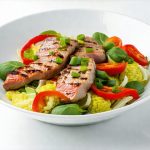The sensation of feeling “full” after drinking coffee or tea is surprisingly common, yet often overlooked as simply part of the ritual. It’s not about physical stomach fullness in the traditional sense – you haven’t eaten anything substantial – but rather a distinct subjective experience that can range from mildly satisfied to remarkably satiated, even curbing appetite. This isn’t necessarily a bad thing; for some, it provides a comforting feeling of contentment, while for others it raises questions about what exactly is happening within their bodies and minds to create this unusual sensation. The interplay between physiological responses, psychological associations, and habitual behaviors are all key factors in understanding why many people experience this phenomenon.
This perceived fullness isn’t always consistent. Some days the effect is strong, other days barely noticeable. It’s influenced by a multitude of variables: the type of coffee or tea consumed, the time of day, individual metabolism, what else has been eaten (or not eaten), and even emotional state. Understanding these nuances helps to demystify the experience and allows individuals to better manage its impact on their dietary habits and overall well-being. It’s a fascinating example of how our brains interpret complex signals from within our bodies, often in ways we don’t fully appreciate or understand.
The Physiological Mechanisms at Play
The feeling of fullness after coffee or tea isn’t simply psychological – there are genuine physiological processes occurring that contribute to the sensation. One key player is the gastrocolic reflex, a natural bodily function where the stomach signals to the colon to empty when it’s been stretched by food (or, in this case, liquid). While not as pronounced with beverages as with solid meals, even the volume of coffee or tea can trigger a mild version of this reflex. This stimulation can create a feeling akin to fullness, particularly if consumed quickly or in larger quantities.
Beyond the gastrocolic reflex, caffeine itself plays a role. Caffeine is known to influence gut motility – how quickly food moves through your digestive system. It generally speeds up digestion for many people, but paradoxically, this can sometimes be interpreted by the brain as fullness. The increased movement and activity in the gut send signals that are registered as satiety cues. This isn’t about having a physically full stomach; it’s about the nervous system interpreting digestive processes as indicative of being satisfied.
Furthermore, both coffee and tea can influence hormone levels related to appetite regulation. While research is ongoing and complex, studies suggest caffeine might temporarily suppress ghrelin, often called the “hunger hormone,” while potentially increasing cholecystokinin (CCK), a hormone that promotes feelings of fullness. These hormonal shifts are subtle but contribute to the overall experience of reduced appetite or perceived fullness. It’s important to remember these effects aren’t universally experienced; individual responses vary significantly based on factors like caffeine tolerance and metabolic rate.
The Role of Temperature & Hydration
The temperature of your beverage matters considerably. Warm liquids, generally, are more satisfying than cold ones. This is partly because warm fluids can be perceived as more comforting and nurturing, triggering a psychological sense of well-being that contributes to the feeling of fullness. But it’s also physiological: warmer temperatures may enhance digestive processes and improve blood flow to the gut, amplifying the signals associated with satiety.
Hydration levels are inextricably linked to this phenomenon. Often, what we perceive as hunger is actually thirst in disguise. Drinking coffee or tea – even caffeinated versions – contributes to your daily fluid intake. The act of drinking itself can fill your stomach momentarily, and proper hydration plays a crucial role in overall digestive health, impacting how your body registers fullness signals. If you’re mildly dehydrated, the feeling of “fullness” after coffee or tea might simply be your brain recognizing adequate rehydration.
Finally, consider the addition of milk or cream to your beverage. These additions introduce fats and proteins into the equation, further enhancing the sense of satiety. Milk-based drinks are far more likely to induce a noticeable fullness compared to black coffee or plain tea because they offer a greater nutritional density and stimulate different digestive pathways. The presence of fat slows down digestion, providing a prolonged feeling of satisfaction.
Psychological Associations & Habitual Behaviors
Our brains don’t exist in isolation; they’re deeply influenced by our learned experiences and habitual routines. If you consistently associate coffee or tea with a period of calm, relaxation, or even a break from work, your brain might begin to equate the act of drinking with a sense of completion and satisfaction – essentially, “fullness” in an emotional sense. This is especially true if you drink it at specific times, like after a meal or during a scheduled break.
The ritualistic aspect of coffee or tea consumption also plays a significant role. Many people enjoy the entire experience – the aroma, the warmth, the slow sipping – which can be incredibly comforting and emotionally fulfilling. This emotional satisfaction is often misinterpreted as physical fullness. We are highly attuned to cues that signal comfort and reward, and our brains readily associate these feelings with a sense of being “satisfied” or “full.”
- Consider your own habits: Do you always drink coffee or tea at the same time?
- Do you pair it with specific activities (reading, working)?
- Are you often stressed or tired when you consume these beverages?
Answering these questions can reveal how deeply ingrained these associations are and how much they contribute to your experience of fullness. Breaking these patterns – even slightly – can sometimes reduce the sensation.
Individual Variability & Tolerance
It’s essential to acknowledge that everyone experiences coffee and tea differently. Factors like genetics, metabolism, caffeine tolerance, and existing dietary habits all influence the impact on feelings of fullness. People who regularly consume caffeine develop a higher tolerance, meaning they may need larger amounts to experience the same physiological effects. This can also affect how strongly they perceive the sensation of fullness.
Furthermore, individuals with pre-existing digestive conditions – like irritable bowel syndrome (IBS) or acid reflux – might be more sensitive to the gut-stimulating effects of coffee and tea. They may experience heightened feelings of bloating or discomfort that are misinterpreted as fullness. Conversely, those with slower metabolisms might find the effects last longer, leading to a more prolonged sense of satiety.
Ultimately, there’s no one-size-fits-all answer. Paying attention to your own body and how it responds to coffee or tea is crucial for understanding your personal experience and managing its impact on your dietary habits. Experimenting with different types of beverages, consumption times, and additions can help you pinpoint what works best for you.





















